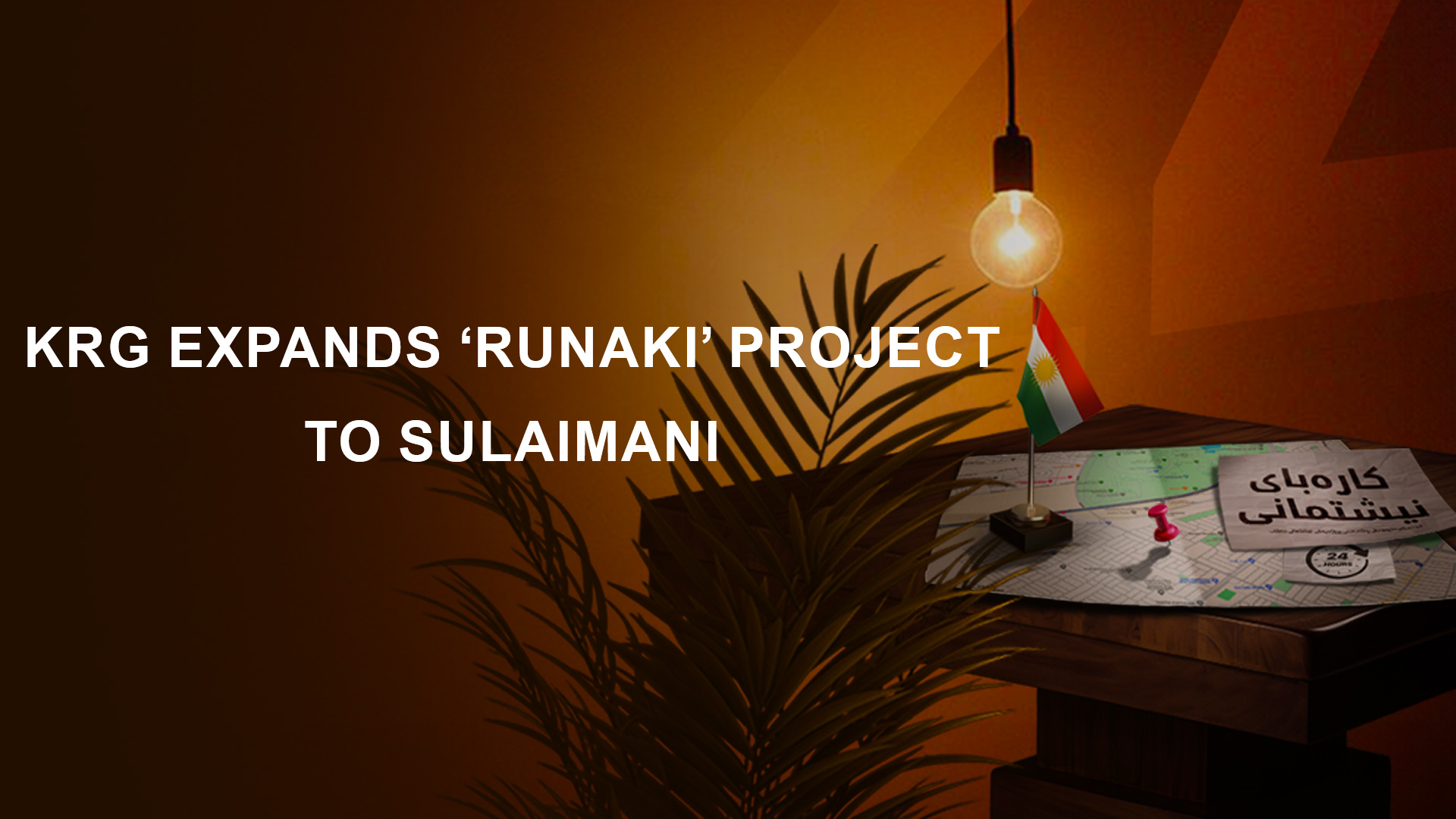KRG Expands 'Runaki' Project to Sulaimani
The Ministry confirmed on Thursday that Runaki has now reached Sulaimani, where it will initially benefit over 9,000 subscribers during a trial phase.

ERBIL (Kurdistan24) – The Kurdistan Regional Government’s (KRG) Ministry of Electricity has announced the official expansion of the "Runaki" national electricity project to Sulaimani Province, marking a critical milestone in the region’s ambitious plan to provide 24-hour electricity to all residents.
The Ministry confirmed on Thursday that Runaki has now reached Sulaimani, where it will initially benefit over 9,000 subscribers during a trial phase.
This phase targets Sulaimani’s market districts and select neighborhoods, with the goal of gradually extending coverage to the entire province. The move follows the project's success in Erbil, where 17 districts have already been connected, providing continuous power to 100,000 subscribers across the region.
The Runaki project represents a significant step forward in modernizing the Kurdistan Region’s electricity grid. Launched by KRG Prime Minister Masrour Barzani on Oct. 17, 2024, the initiative aims to provide uninterrupted electricity to all parts of Kurdistan by the end of 2026.
The Ministry of Electricity emphasized that Runaki is a crucial part of the government’s strategy to reduce reliance on costly and environmentally harmful private generators.
By ensuring a stable and efficient power supply, the initiative seeks to enhance the quality of life for citizens and improve economic activity in key commercial zones.
Following its rollout in Erbil and the current trial phase in Sulaimani, the Runaki project is set to be implemented across all major cities in Kurdistan. The next phase of the project has already been implemented in Duhok, with further expansion plans extending to other districts and rural areas.
Local authorities have been instructed to fully cooperate with the Ministry of Electricity to facilitate a smooth transition to a centralized power grid.
Infrastructure improvements, smart metering, and network upgrades are being prioritized to support the expansion of the system.
For decades, residents of the Kurdistan Region have relied on a patchwork of government-provided electricity and privately owned diesel generators to meet their power needs.
Frequent power shortages and fluctuating availability have placed financial burdens on households and businesses alike.
The Runaki project seeks to change this by ensuring a consistent and sustainable electricity supply. As the initiative expands, officials expect a sharp decline in the need for private generators, which will lead to reduced electricity costs and lower environmental pollution levels.
The Kurdistan Regional Government has underscored its commitment to modernizing public utilities and transitioning to a more sustainable energy system.
The Runaki project is part of a broader set of reforms aimed at improving energy efficiency, investing in renewable sources, and ensuring equitable access to electricity for all residents.
The Ministry of Electricity has assured the public that efforts to maintain system reliability, manage energy consumption effectively, and integrate new technologies will continue as part of the region’s long-term energy strategy.
With the ongoing success of Runaki, the Kurdistan Region moves closer to achieving its goal of 24-hour electricity for all, setting a precedent for future infrastructure projects and demonstrating the government’s commitment to progress and modernization.